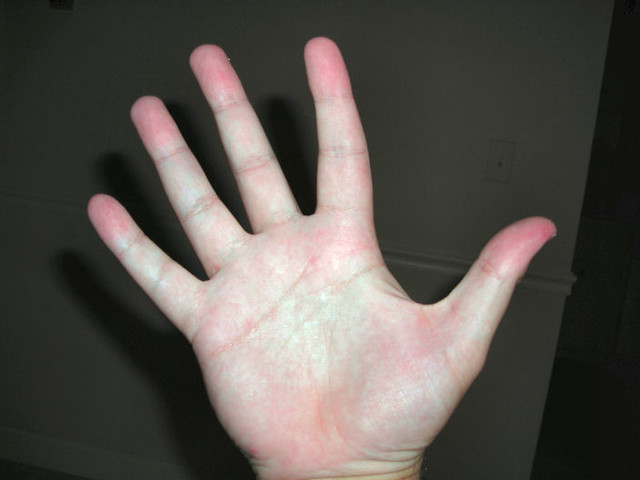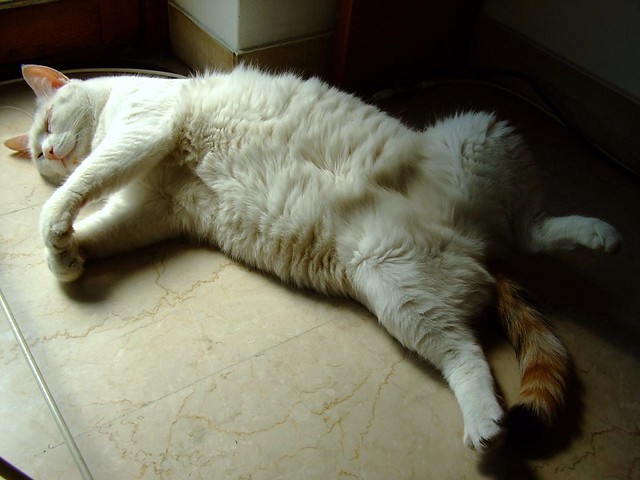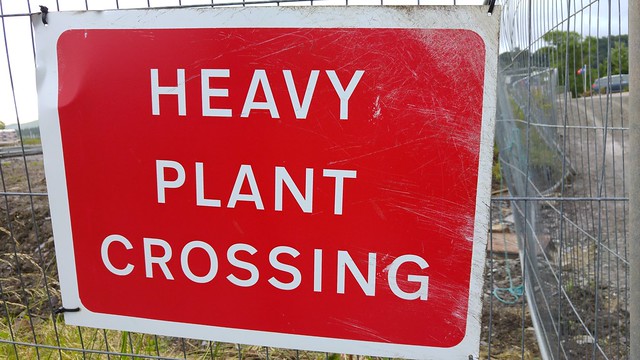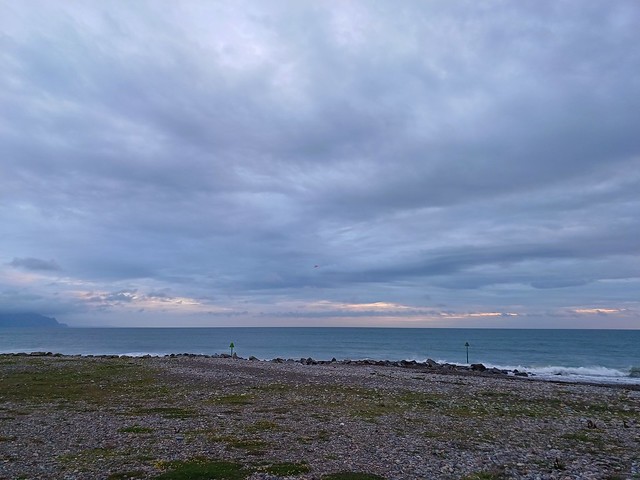Words for fist, palm, hand, arm and related things in Celtic languages.
Words marked with a * are reconstructions.
| Proto-Celtic | *ɸlāmā = palm, hand |
|---|---|
| Old Irish (Goídelc) | lám [l͈aːṽ] = hand, arm, prowess, accomplishment, power |
| Middle Irish (Gaoidhleag) | lám = hand, arm, prowess, accomplishment, power lámann, lámand, lámínd = glove, gauntlet, sleeve lámannán, lamannan = bladder |
| Irish (Gaeilge) | lámh [l̪ˠɑːvˠ / l̪ˠæːw] = hand, arm, handle, signature, measure (of horses) lámhach = skill in handling, in casting, dexterity lámhadóir = handler lámhainn = glove lámhainneoir = glove-maker lámhainneoireacht = glove-making lámhaíocht = helping hand, subscription |
| Scottish Gaelic (Gàidhlig) | làmh [l̪ˠaːv] = hand, arm, handle làmhainn [l̪ˠaːvɪn̪ʲ] = glove, mitten, gauntlet làmhchaireach = handy làmhcharach = dexterous, handy làmhchran, làmhrachan = handle làmhnan = handyman làmhadh = pawing, handling, groping |
| Manx (Gaelg) | laue [læu] = hand, handful, foreleg, grasp (of oar), arm lauee = dexterous, handy, useful, versatile, manual lauean = glove laueys = alacrity, elbow grease, skilfulness, industy |
| Proto-Brythonic | *lọβ̃ [ˈlɔːβ̃] = palm, hand |
| Old Welsh | lau = hand |
| Middle Welsh (Kymraec) | lav, law, llav, llaw = hand llaw agor, llawegor, llaw egor = generous, bountiful |
| Welsh (Cymraeg) | llaw [ɬaːu̯ / ɬau̯] = hand; authority, control, rule, management, power; ownership, possession; influence; agency, instrumentality, part; guardianship, keeping, custody, care, protection; side, direction, position; skill, touch llawagor, llawegor = generous, bountiful, liberal, open-handed, creeping thistle, water-pepper llawaid = handful llawan = little hand |
| Old Cornish | lof = hand |
| Middle Cornish (Cernewec) | lau, lef, lof, luef = hand lofgurchel = utensil |
| Cornish (Kernewek) | leuv [lœ:v / le:v] = hand leuvdosa = to massage leuvdosans = massage leuvherdhya = to hand-off leuvvedhegel = surgical leuvvedhek, leuvvedhoges = surgeon leuvwelen = baton |
| Old Breton | lom = hand |
| Middle Breton (Brezonec) | lau = hand |
| Breton (Brezhoneg) | lav [lav] = feathered hand |
Etymology: from Proto-Indo-European *pl̥h₂meh₂ (palm, hand). The Faroese word lámur (flipper, paw, left hand) comes from the same Proto-Celtic root, via the Old Norse lámr (hand, arm) [source].
| Proto-Celtic | *bostā = palm, fist |
|---|---|
| Gaulish | *bostyā = palm, fist |
| Old Irish (Goídelc) | bos / bas = palm |
| Middle Irish (Gaoidhleag) | bas, bos, bass = palm of the hand basach = having hoofs or claws baslach = handful |
| Irish (Gaeilge) | bos = palm (of hand); handful; slap; flat end, blade bosach = bladed, flat-footed bosachán = flat-footed person bosaíl = patting, flat-footedness boslach = handful |
| Scottish Gaelic (Gàidhlig) | bas [bas] = palm (of hand), lower end of a shinty stick, eye (of a fishing hook) bas-bhualadh = clapping of hands, applause baslachadh= clapping, cupping (in one’s hands) basgar = applause, skirl (in music) baslach = handful, palmful, baptism |
| Manx (Gaelg) | bass = palm, flat of hand, blade of oar, scale pan, bass bassag = backhander, clap, clout, pat, slap, smack bassey = applause, clap, clapping basslagh = double handful, enough to cover palm, palmful |
| Proto-Brythonic | *bos [ˈbos] = hand |
| Old Welsh | bos = palm |
| Middle Welsh (Kymraec) | bos = palm |
| Welsh (Cymraeg) | bos = palm (of the hand), unit of length |
| Middle Breton (Brezonec) | boz = hollow of the hand |
| Breton (Brezhoneg) | boz [ˈboːs] = hollow of the hand |
Words marked with a * are reconstructions.
Etymology: possibly from the Proto-Indo-European *gʷésdos (branch) [source]. The Middle Latin word bostia (small box, reliquaire was borrowed from the Gaulish *bostyā, and became bostellus (bushel), the root of the French word boisseau (bushel, hollow cylinder), and the English word bushel [source].
| Old Irish (Goídelc) | rig [r͈ʲiɣ] = forearm |
|---|---|
| Middle Irish (Gaoidhleag) | rig = forearm from wrist to elbow |
| Irish (Gaeilge) | rí [ɾˠiː] = forearm |
| Scottish Gaelic (Gàidhlig) | ruighe [r̪ˠujə] = plain, flat ground, (at base of a mountain), shieling area, forearm ruigheadh = laying out a body, shrouding, stretching out ruigheachas = tussle, armwrestling ruigheachdail = accessible |
| Manx (Gaelg) | roih = arm, forearm |
Etymology: possibly from the Old Irish *reg (to stretch) [source].
| Middle Irish (Gaoidhleag) | brac, brach = arm, hand bracann, bracand = sleeve braccaille = glove |
|---|---|
| Irish (Gaeilge) | brac = arm (literary), bracket bracach = brachial bracaíl = brachiation |
| Scottish Gaelic (Gàidhlig) | brac [braxg] = arm, curve (of a breaking wave), branch (of antlers), deer (poetic) |
| Middle Welsh (Kymraec) | ureich, ureych, braich = arm |
| Welsh (Cymraeg) | braich [brai̯χ] = arm, care, assistance, support, power, might, strength, forelimb of animal, wing, headland, creek braich olwyn = spoke (of wheel) braich o’r môr, braich o fôr = arm of the sea, inlet braich ym mraich = arm-in-arm |
| Old Cornish | bregh = arm |
| Middle Cornish (Cernewec) | brech, brêch, breh = arm brechol = sleeve |
| Cornish (Kernewek) | bregh [brɛ:x /bre:ʰ] = arm breghel = sleeve breghellik = bracelet |
| Middle Breton (Brezonec) | brech, breach, bræch = hand, paw |
| Breton (Brezhoneg) | brec’h = hand brec’had = handful brec’hata = to grasp round the waist, embrace |
Etymology: from Latin bracchium (hand). Words from the same Latin root include brachium (upper arm) in English, bras (arm) in French, brazo (arm, branch, (tree) limb) in Spanish, and braccio (arm) in Italian [source].
| Proto-Celtic | *durnos = fist |
|---|---|
| Old Irish (Goídelc) | dorn = fist |
| Middle Irish (Gaoidhleag) | dorn, dornn, dord = hand, fist, possession, handle dornach = generous-handed dornán = fistful, handful, sheaf dornasc = bracelet dornóc = glove, mitten |
| Irish (Gaeilge) | dorn [d̪ˠoːɾˠn̪ˠ] = fist; punch; fistful, small quantity; handle, grip dornáil = boxing dornálaí = boxer dornán = fistful, handful, small quantity or number, small handle, grip dornóg = mitten dornúil = pugilistic |
| Scottish Gaelic (Gàidhlig) | dòrn [dɔːr̪ˠn̪ˠ] = fist; punch, hilt, handle dòrnach = fistful, boxer, pugilist dòrnadaireachd = boxing, pugilism dòrnan = small fist, handful, grip, dòrnag = fist-sized pebble/stone, oar handle, gauntlet dòrnair = boxer, pugilist dòrnlach = handful, batch |
| Manx (Gaelg) | doarn = fist, pad, sword handle, grip doarnane = haft, hilt, spoke, handle, hand grip, fistful doarney = box, boxing, buffet doarneyr = boxer doarneyrys = boxing (match), fighting |
| Middle Welsh (Kymraec) | durn, dwrn,, dyrn = fist, hand, paw, hilt, handle |
| Welsh (Cymraeg) | dwrn = fist, hand, paw, hilt, handle, haft, pommel, knob dwrn caead = clenched fist |
| Middle Cornish (Cernewec) | dorn = fist, hand, handle, hilt |
| Cornish (Kernewek) | dorn [dɔrn] = fist, hand, handle dorna = to bash, beat, punch, strike, thrash dornas = fistful, handful dornbel = handball dornel = manual dornlyver, dornlever = handbook dornskrif = manuscript dornweyth = handicraft |
| Middle Breton (Brezonec) | dornn, dorn, dourn = hand dornat, dournat, dournad = handle, handful dornaff, dournaff = to beat, hit dornec = large-handed |
| Breton (Brezhoneg) | dorn [ˈdɔʁn] = hand, fist dornad = handle, handful dornañ = to beat, hit dornek = large-handed |
Etymology: probably loaned from a non-Indo-European substrate language [source].
Sources: Wiktionary, Am Faclair Beag, Online Manx Dictionary, Teanglann.ie, eDIL – Electronic Dictionary of the Irish Language, In Dúil Bélrai English – Old Irish glossary, Geiriadur Prifysgol Cymru, Gerlyver Kernewek, Gerlyvyr Cernewec, Lexicon Cornu-britannicum: A Dictionary of the Ancient Celtic Language of Cornwall, Dictionaire Favereau, TermOfis, Le dictionnaire diachronique du breton, Geriafurch, English – ProtoCeltic WordList (PDF), Etymological Dictionary Of Proto Celtic










